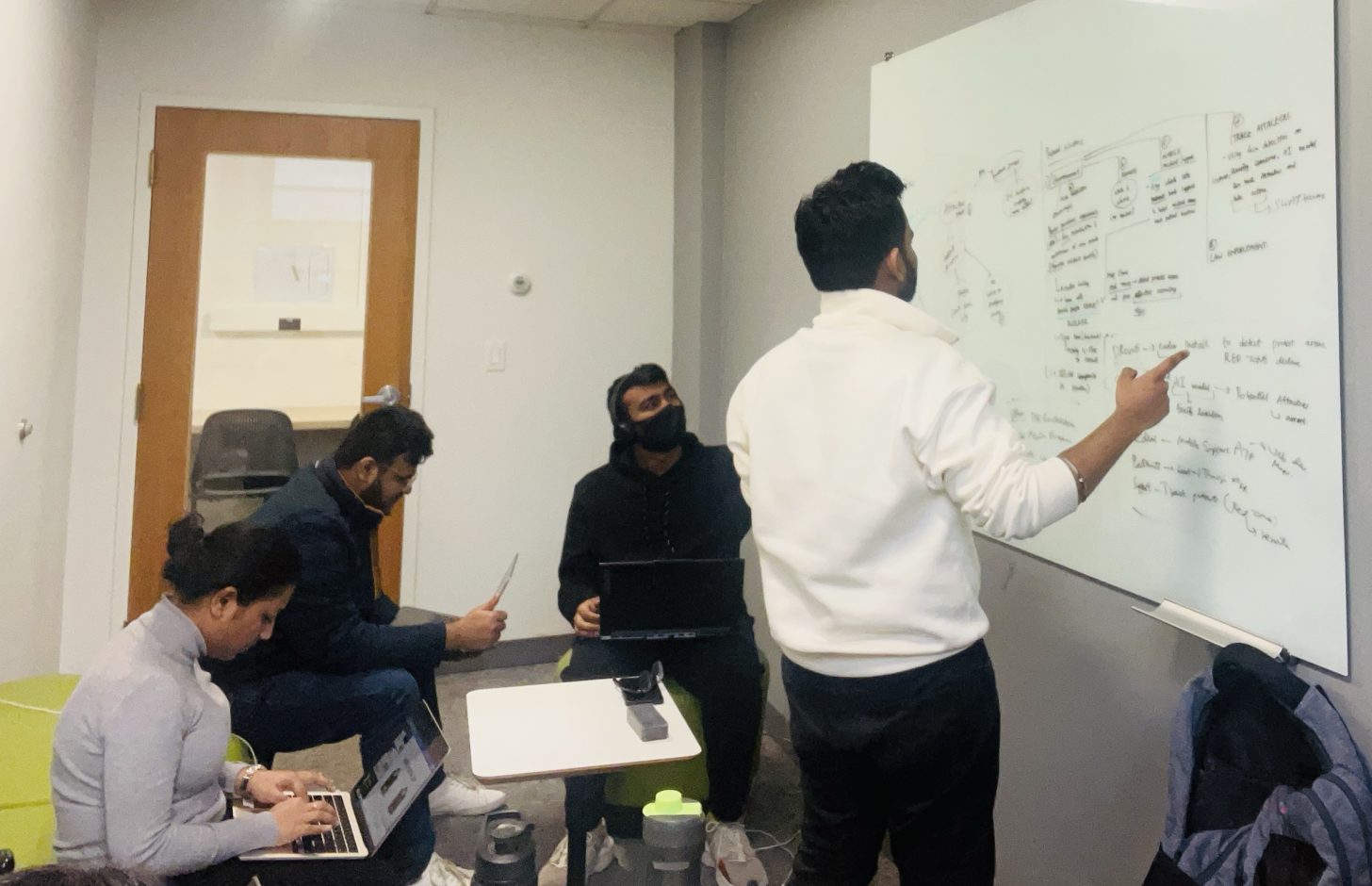Northeastern COE Students Win 2nd Prize in DASSH Challenge 2024
A COE student team placed second in the 2024 Designing Actionable Solutions for a Secure Homeland (DASSH), a student challenge focused on solving simulated homeland security problems created by the Soft Target Engineering to Neutralize the Threat Reality (SENTRY) research center and Arizona State University’s Center for Accelerating Operational Efficiency.
The COE Huskies student team placed second in the 2024 Designing Actionable Solutions for a Secure Homeland (DASSH) by solving a simulated homeland security challenge focused on an adversarial attack on a city infrastructure. DASSH is presented by Soft Target Engineering to Neutralize the Threat Reality (SENTRY), a Department of Homeland Security Center of Excellence, and the Center for Accelerating Operational Efficiency (CAOE) at Arizona State University.
Undergraduate and graduate student teams were tasked with solving simulated real-world challenges related to this year’s theme, “Cascading Events.” Guided by mentors from academia and industry, teams selected one of three problem statements focused on detecting and mitigating such threats as cyber attacks, natural disasters, and human-engineered sabotage.
The event commenced with a warm welcome from SENTRY Director Michael Silevitch, the Robert D. Black Professor, COE Distinguished Professor, electrical and computer engineering, and CAOE Executive Director Ross Maciejewski, who presented a video greeting from Dimitri Kusnezov, the Under Secretary for the Department of Homeland Security Science and Technology Directorate. Dr. Juan Lopez Jr. from the Department of Homeland Security, gave a keynote address focused on industrial control systems and open-source software within the critical infrastructure security and resilience program. He also delved into the intricacies of cascading events and shared practical tips to empower students in navigating the following complex problem statements:
- Problem Statement 1: “How do we anticipate, detect, and mitigate AI-enabled cyberattacks on interdependent U.S. critical infrastructure—and manage related consequences—during a time of enhanced tension?”
- Problem Statement 2: “How might we mitigate or recover from an adversarial attack on city infrastructure that is exacerbated by a major heat wave that is affecting the power grid?”
- Problem Statement 3: “How might we mitigate and recover from cascading effects of a large earthquake and tsunami in Northern California that destroys roads, ports, electrical, sewage, and water infrastructure leading to disease propagation?”
Among the 33 participating teams, six included students from SENTRY’s partner institutions, with 19 SENTRY student researchers represented. The Huskies placed second for its solution to Problem Statement 2. The team included: Surya Sai Brahmendra Ramoju, Sri Likhitha Anuganti, John Yehti Rajulu, Hari Chandana Kannuru, Rohit Varma Mudundi, and Sahita Bonthu.
“The most thrilling part of the event for me was the intense, hands-on collaboration,” says Ramoju. “Our team used a strategic blend of innovation and commitment, targeting the resilience of urban infrastructure against a cyber-attack and heatwave. We integrated solar energy solutions, AI and drone surveillance for security, and a mobile app for medical access, using technology for enhancing public safety and urban resilience.”
 The event concluded with a presentation from Greg Simmons of the Department of Homeland Security Science and Technology Directorate. He encouraged students to stay involved in Homeland Security through the Minority Serving Institution and Workforce Development Programs, and noted the DASSH students had produced innovative and creative solutions to real-world problems.
The event concluded with a presentation from Greg Simmons of the Department of Homeland Security Science and Technology Directorate. He encouraged students to stay involved in Homeland Security through the Minority Serving Institution and Workforce Development Programs, and noted the DASSH students had produced innovative and creative solutions to real-world problems.
“This wasn’t just about solving a problem; it was a profound experience of learning, growing, and pushing boundaries,” adds Romoju. “The dynamic interplay of creativity, challenge, and the shared goal of making a tangible difference was unforgettable.”
SENTRY looks forward to creating continued opportunities for student engagement through these annual DASSH student challenges and plans to work closely with the SENTRY Student Leadership Council to envision new ways to support our students.